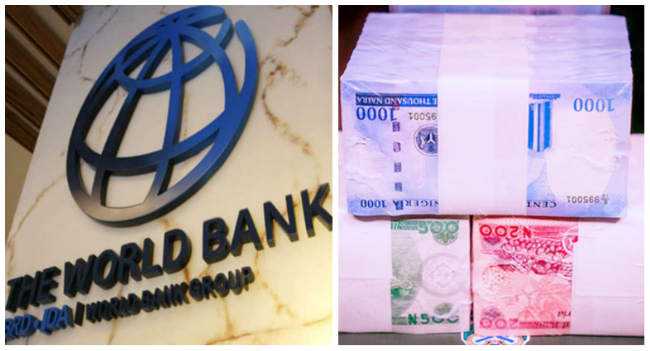
The Nigerian naira is among the worst-performing currencies in Africa, the World Bank has pronounced.
The international financial institution noted that the Nigerian currency weakened by nearly 40 per cent against the US dollar since a mid-June devaluation.
The global bank explained in its report, ‘Africa’s Pulse: An analysis of issues shaping Africa’s economic future (October 2023 | Volume 28).’
It stated, “So far this year, the Nigerian naira and the Angolan kwanza are among the worst performing currencies in the region: these currencies have posted a year-to-date depreciation of nearly 40 per cent.
“The weakening of the naira was triggered by the central bank’s decision to remove trading restrictions on the official market. For the kwanza, it was the decision of the central bank to stop defending the currency as a result of low oil prices and greater debt payments.”
Other currencies with significant losses so far in 2023, according to the World Bank, included South Sudan (33 per cent), Burundi (27 per cent), the Democratic Republic of Congo (18 per cent), Kenya (16 per cent), Zambia (12 per cent), Ghana (12 per cent), and Rwanda (11 per cent).
It noted that parallel exchange market rates are also compounding inflationary problems for some countries in the African region.
Highlighting the widening difference between the naira’s parallel and official exchange rates, the bank stated that this had been the case from March 2020 until June 2023.
It added, “However, resistance toward the increasing pressure on the Nigerian naira coupled with limited supply of FX at the official window has led to the reemergence of the parallel market premium.”
The Washington-based bank highlighted that Nigeria’s growth rate would decelerate from 3.3 per cent in 2022 to 2.9 per cent in 2023.
Commenting on the recent reforms of the new administration of Bola Tinubu, the global bank disclosed that the purchasing power of households was expected to suffer in the short term.
It said, “The naira has weakened by nearly 40 per cent against the US dollar since the mid-June devaluation. Although these measures are intended to improve the fiscal and external accounts of the nation, their inflationary effects in the near term can erode the purchasing power of households and weigh on economic activity.”
